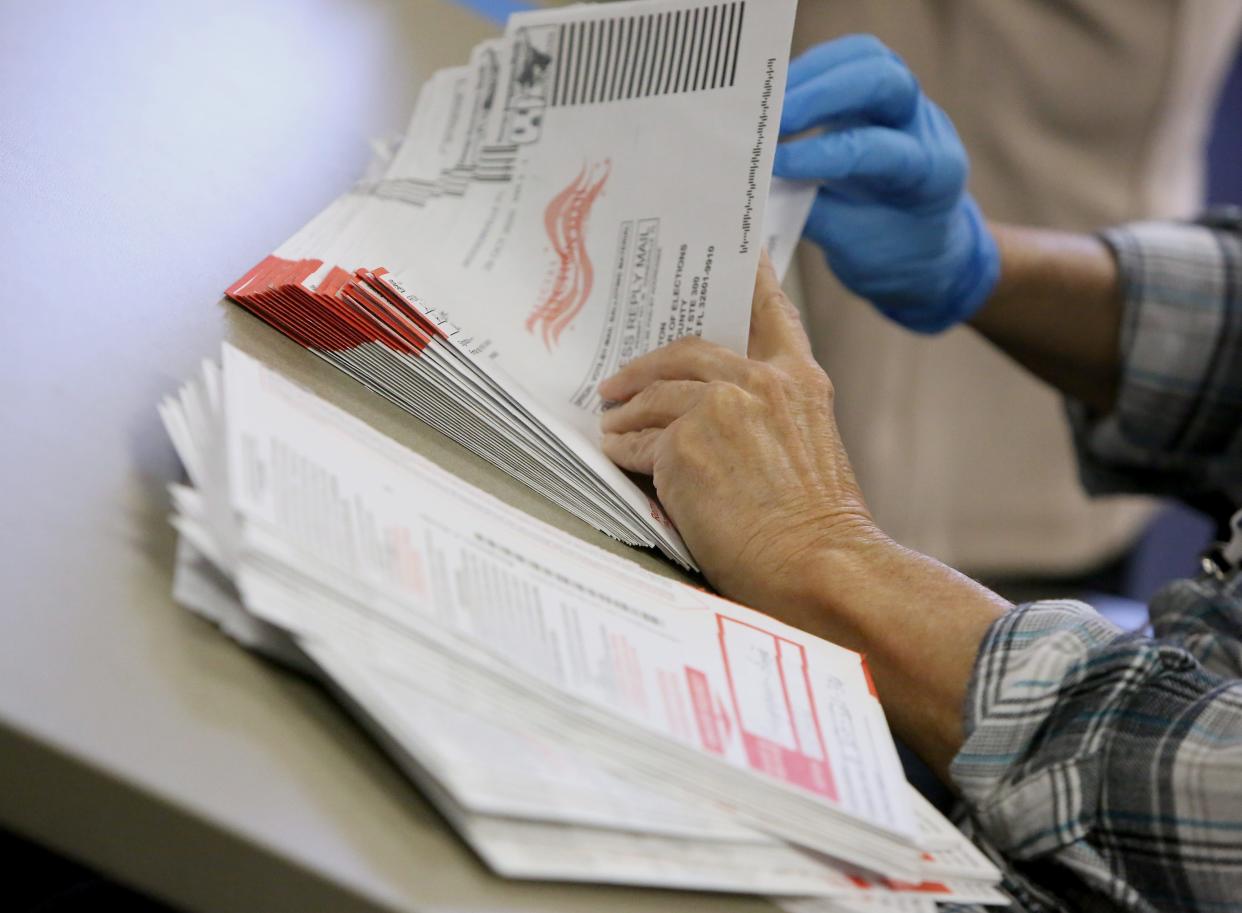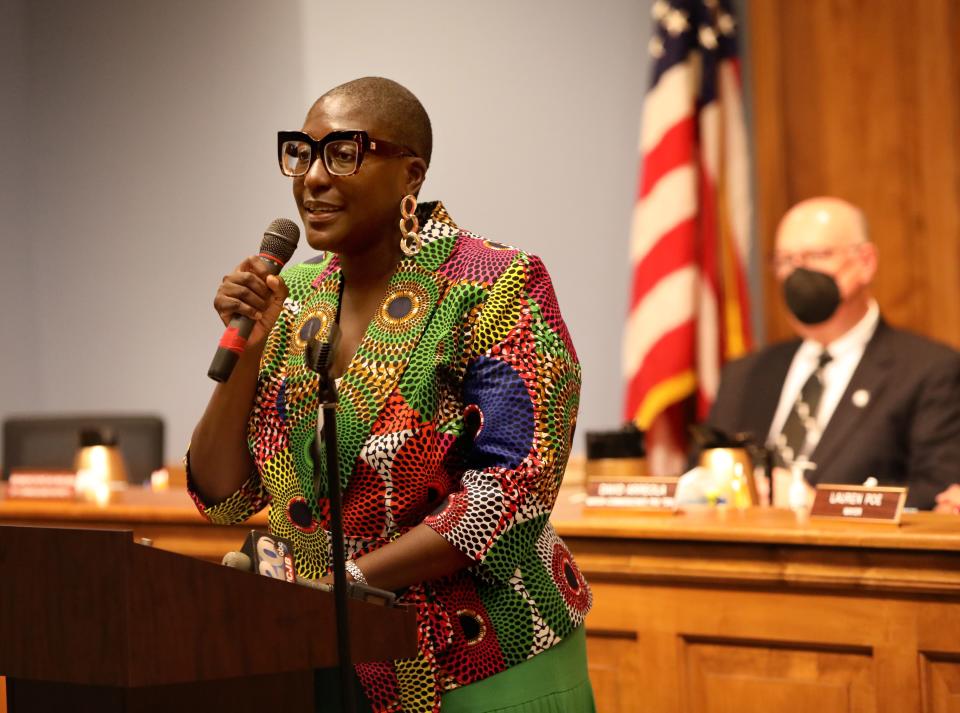Special election blues: City Commission election came at high cost for low turnout

Holding a special election is an expensive proposition. Our most recent city vote on Nov. 16, to fill a City Commission seat vacated by Gail Johnson, cost the city of Gainesville $200,000 with more funds likely to be expended for the runoff election scheduled for Jan. 25.
I was a poll worker in Precinct 26 for the Nov.16 special election. I and six others were on the job from 5:45 a.m. to set up the polls, which opened at 7 a.m. and remained open until 7 p.m., per the law, and then continued working for another hour and a half.
Ninety-six voters showed up at our precinct, an average of eight per hour. In all just 13% of 89,785 eligible voters cast ballots, according to the Supervisor of Elections' Office.
The special election was triggered by Gail Johnson’s decision to resign after she won reelection to a second term for an at-large seat, just eight months ago in March. At the time, Johnson said she was “optimistic” about her second term in office and said at the time she hoped to work to improve education, housing and food access, particularly for east Gainesville.

But Johnson’s “optimism” about what she could accomplish didn’t last and just five months after being sworn in to a second term, she announced that she was resigning. She said she was doing so because of her concerns about some commission decisions and what she described as her “first and central concern, the retention of the city manager.”
Former City Manager Lee Feldman resigned just a month after Johnson announced her decision, although Feldman walked away with a $113,000 severance package. In other words, two of the key players in the City Commission tempest are no longer in their respective jobs.
Would Feldman have resigned if Johnson had stayed on the job? Who knows, certainly not this writer. If Johnson now regrets having given up her seat, she isn’t saying. In a text message she made public shortly after Feldman said he was leaving, Johnson reminded her supporters that her letter of resignation made clear she would not and could not change her mind about leaving the commission.
“It has been an honor to serve our neighbors,” Johnson said in the text. “I turned in my non-rescindable resignation, which was the trigger for the special election. With many recent events and deep-rooted challenges at the city, I remain committed to doing the work that our community so desperately needs, whether or not I’m in an elected position.”
Johnson has thrown her support behind Cynthia Chestnut, one of the two candidates who will be vying for the commission seat in the runoff election. Chestnut got 5,400 or 46.06% of the votes cast; her runoff opponent Matt Howland got 4,840 or 41.24% of the votes. The other three candidates — Scherwin L. Henry, Patrick O. Ingle and Gabe H. Kaimowitz — got 1,236, 127 and 122 votes respectively.
Still, one must wonder what the trigger was that prompted Johnson to say enough. After serving on the commission for three years following her election in 2018, the difficulties she encountered should have come as no surprise to her.
Perhaps she could have done more for her constituents by staying on job and saved the city the expense of the special election, in which only 13% of registered voters participated. Now more money will be spent for the runoff.
The runoff came as no surprise and, in fact, I was asked if I could work the runoff even before the special election was held. I have said yes. I believe in the voting process and take a strange pleasure in serving as an election worker. I just think there must be another way to handle an election called for due to special circumstances that doesn’t cost the taxpayer so much.
More from Ronnie Lovler:
Health insurance now more accessible to more people
No impunity in the United States
Being a health insurance Navigator
Supervisor of Elections Kim Barton asked the commission to consider making the race a winner-take-all election, in which the person who gets the most votes wins the seat even if the top vote-getter does not amass more than 50% of the vote.
The concern for Barton was that a January runoff would mean her staff would have to work through the December holidays.
“We won’t get any time off if there’s a runoff,” she said.
However, the city approved the election with a runoff. Mayor Lauren Poe said he didn’t support making the special election winner-take-all without a runoff.
“If we had a ranked choice voting system, we wouldn’t need a runoff,” Poe said. “I think it’s important that whoever wins receives the majority of the vote of the people they are going to serve.”
Ronnie Lovler lives in Gainesville.
Join the conversation
Send a letter to the editor (up to 200 words) to letters@gainesville.com. Letters must include the writer's full name and city of residence. Additional guidelines for submitting letters and longer guest columns can be found at bit.ly/sunopinionguidelines.
Journalism matters. Your support matters.
Get a digital subscription to the Gainesville Sun. Includes must-see content on Gainesville.com and Gatorsports.com, breaking news and updates on all your devices, and access to the Gainesville.com ePaper. Visit www.gainesville.com/subscribenow to sign up.
This article originally appeared on The Gainesville Sun: Ronnie Lovler: Gainesville special election was costly for low turnout

